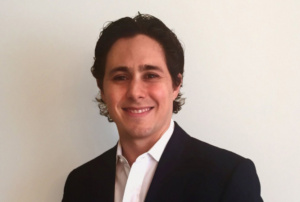As the US retail FX market shrinks and more firms pull out, why are IBs looking elsewhere? – Interview
Established IB Justin Hertzberg on what drives IBs in the United States into overseas market as the US retail FX market continues to consolidate and contract in terms of retail brokerages. Here is a full analysis and account

The United States has for the last five years been an environment in which retail FX trading in its mainstream form has become subject to very stringent and domestic market-focused restrictions.
These restrictions, which include net capital adequacy requirements of $20 million for a Forex dealer and $45,000 for an introducing broker (IB), are among several customer protection initiatives which stand America out over and ahead of other nations as far as quality of regulatory conservatism is concerned, and have also engendered the thriving institutional and exchange-traded futures industry in the US to take considerable precedence over the retail OTC electronic trading segment.
As far as domestic market retail FX brokerages are concerned, traders in the US who do not qualify as high net worth individuals with large portfolios have three retail firms to choose from, those being FXCM, GAIN Capital and OANDA Corporation, all three offering a slightly different focus with FXCM revisiting its institutional division and continuing to evolve retail products such as Enhanced Index CFDs, GAIN Capital, which has its GTX institutional division remaining very much a retail-focused dealing desk broker, and OANDA Corporation with its technology-led ethos.
Last year, in a meeting with FXCM CEO Drew Niv, FinanceFeeds looked at the differentiating factors that are now making their presence known among the remaining companies in the US.
“Many of our customers have NinjaTrader or EFutures, and then they buy the futures feeds for the platform. We want to bring a lot of data to the FX market for free because we feel there is a real need for it” Mr. Niv explained to FinanceFeeds.

Mr. Niv concurred that “So many retail clients are getting more sophisticated, and are selling data, and making their own algos, and companies there are going into fintech. Two years from now, the amount of tools in the hands of people will be completely insane!” exclaimed Mr. Niv.
Yesterday, Interactive Brokers, the most highly capitalized brokerage in North America and indeed one of the most stable in the world, notified its customers that as of next month, it would only extend retail trading facilities to persons or organizations with assets of over $10 million or $5 million if the traders hedge their positions.
The National Futures Association (NFA) stipulates that no US based firm which is an NFA member is allowed to onboard customers from overseas, and overseas firms are not allowed to solicit US customers, and indeed in 2011, most firms whose origins are not in the US pulled out of the US market altogether, leaving the large domestic Stateside firms to compete against each other, and the larger clients to maintain their exchange traded futures portfolios with larger deposit amounts and different trading strategies being the preserve of Chicago’s highly developed futures sector and using Trading Technologies or CBOE front ends.
Bearing all of this in mind, where does an NFA regulated introducing broker (IB) consider the future to lie? In order to find out, FinanceFeeds spoke to Justin Hertzberg, CEO of Forest Park FX, who explained this in detail.
Do you think that, despite the extremely stringent rules that NFA regulated IBs have to stick to and have dedicated their business to, plus the large net capital adequacy requirement, there is merit in obtaining further licenses to take on overseas clients?
Generally speaking, FX in the US is a challenging environment. For some brokers and introducing brokers, it has proven to be too challenging and they have left the US market to focus on the international FX market which has lower barriers for entry and ongoing regulatory requirements.
For others, I think there is concern about spreading firm resources too thin and so they decide to focus exclusively on the US market and eschew opportunities abroad. With regard to Forest Park FX, we pride ourselves on providing high-touch professional service to our clients. We want our clients to know that they can count on us for brokerage advice, custom trading solutions and pertinent information which affects the industry and their personal trading.
Being registered with the CFTC adds both a level of credibility and access to information that enables us to better provide those services to our clients. In addition, we sense that the trend in the global FX industry is one towards more regulation.
And so we are embarking on plans to obtain registration as an IB in other major FX jurisdictions. While regulation is often not needed in most parts of the world, we are comfortable taking the high road, albeit the one less traveled.
Which jurisdictions are popular among US based IBs that want to branch out, and what is interesting about the regulatory structure and the potential quality of client bases in those regions?
I can’t speak for other IBs, but for us, we are targeting the UK/Europe and Australia as the brokers in those jurisdictions tend to be more heavily regulated and, as a result, more reputable and fair to clients.
Is there a significant benefit in onboarding overseas clients when US customers are often longer term customers of the brokers they trade with and their deposit size is $6,600 on average compared with $3,800 for the rest of the world?
We’ve noticed that there is definitely a difference in the makeup of the average retail FX trader from the US and abroad. As you point out, deposit size among US traders tends to be higher than outside the US.
However, these smaller deposits are negated to an extent by greater competition (which results in tighter pricing), higher leverage, no FIFO and hedging restrictions and access to other products like CFDs, which tend to encourage more trading on a dollar deposited by dollar deposited basis.
When you take that into consideration along with the fact that the US FX market is just a small sliver of the overall FX industry, I think there is plenty of opportunity abroad.
Are US IBs considering terminating their NFA membership and looking to establish abroad, or is the high quality of the US structure and potential customer still significant enough to keep business in the US?
I can’t speak for our colleagues and competitors, but we have and continue to build our US business and are excited about the growth of the business and the opportunities taking shape in our pipeline here.
For us, extending our business beyond our borders is just part of our growth strategy. And I think our experience in the US regulatory schema has prepared us well for operating in some of the heavily regulated, yet still pro-business jurisdictions outside the US.
Why are ASIC in Australia and the FCA in Britain particularly interesting ?
Ultimately, we want to fish where the fish are. And outside the US, English speaking traders are gravitating to FCA and ASIC regulated brokers.
The reasons for this are the favorable trading conditions I discussed earlier, but also because of the protections these jurisdictions afford clients – namely segregated funds and (at least in the UK and parts of Europe) insured deposits.
What are Forest Park FX plans for overseas expansion and what type of customer is in mind?
In the intermediate term, we are seeking registration with FCA and ASIC with broader plans for Asia and certain parts of South America. In terms of customers, we hope to have solutions to service all traders – from the beginner retail trader to the small institutional fund.
But our core mission will remain the same; provide outstanding, responsive service to our clients worldwide, introduce them to regulated reputable brokers that will provide a fair trading environment and lobby to reduce their costs of trading and support their trading activities and businesses. We’re not glitz and glamor; we’re just really good at what we do.
We hope that with our expansion plans more traders will learn this.









